While female participation has contributed to Tanzania’s strong economic growth over the last 20 years, many constraints still prevent Tanzanian women from achieving their full potential, and it all starts with a culture that limits women’s access to education and social mobility.
Since 2010, TAWAH (Tanzania Women Architects for Humanity) has been taking action to create decent and sustainable shelter for the most vulnerable communities in rural Tanzania.
The Knowledge Hub Center at Mhaga Village marks a step forward: by upskilling the Mhaga women in construction, TAWAH is not only shaping a better future for them but also building a stronger sense of community.
Victoria, tell us who you are and what you do.
I am a mother, a wife, a practicing architect and a co-founder of TAWAH. I graduated from a constituent college of the University of Dar es Salaam - UCLAS (now known as Ardhi University), and later I returned to Ardhi University to teach. My academic journey gave me the opportunity for further studies abroad in the US and Germany. Through all that travelling though, I always felt the need to return to Tanzania and try to repay people like my mother, and aunts who had made sacrifices so that I could gain my education.
During my time as a teacher, I had this recurring thought: “Yes I’m lucky enough to be here teaching. But how can I support many women, girls and children living in extreme poverty, especially in the rural areas and fulfil their dreams”. I was also curious about children with disabilities because in all my years of teaching at the university, there were never any students with any kind of disability in my class. So, I needed to go out there, see for myself, and then do something about it.
This first step in working with women, girls and children led me and my friends to found TAWAH.
Tell us more about Tanzania. What are the country’s main problems today in regard to women and wealth inequality?
Tanzania is a big country. We have a population of over 60 million. While Tanzania has experienced over 20 years of sustained growth, women are still lagging behind in accessing resources, including those needed to further their careers.
Several factors have contributed to this gap. Above all in rural areas, there’s still a notion that the role of women is limited exclusively to staying at home and raising children.
Culture is definitely a main trigger in fuelling wealth inequality: it influences women’s access to education, and thus their ability to gain employment and become self-sufficient.
But you made it. What was your personal experience?
My father, who was from the countryside, was able to get an education and move to the city. From the start he understood the importance for us women to be educated. I have four sisters and three brothers, and my father managed to provide us all with an education. While it is important for women to support each other, men must also take their responsibility seriously by protecting and fostering the interests and aspirations of their daughters, wives, mothers, and grandmothers.
Both my parents saw it as their duty to extend their support to relatives from their villages. Growing up, we always had relatives staying with us so that they could also go to school. It’s a responsibility my parents decided to take on thinking that if you can support one person, that person will go back to their community and support someone else. That support becomes like a seed for positive change that keeps generating fruits and growing.
This is the same spirit that we have in TAWAH: yes, we have our degrees, but if we do not go back and support those who don’t, what is the use of those degrees? People of humble means did not make sacrifices for us just so we could enjoy ourselves and live a life of luxury. We need to take our responsibility seriously and support our communities.
If you can support one person, that person will go back to their community and support someone else. That support becomes like a seed for positive change
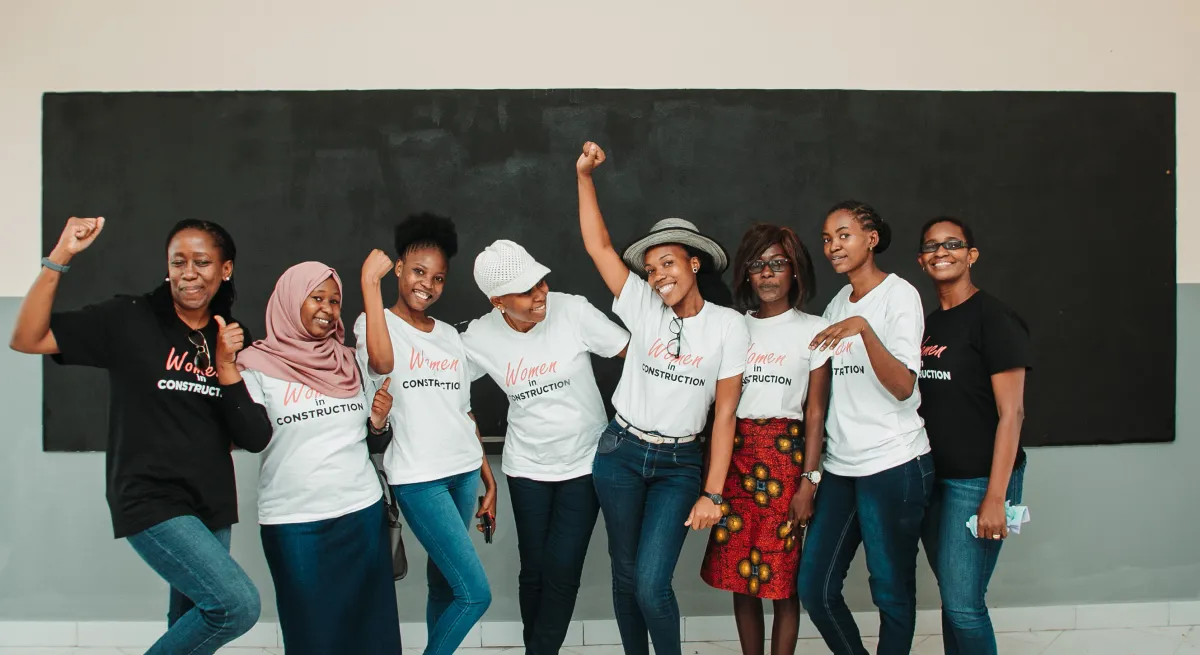
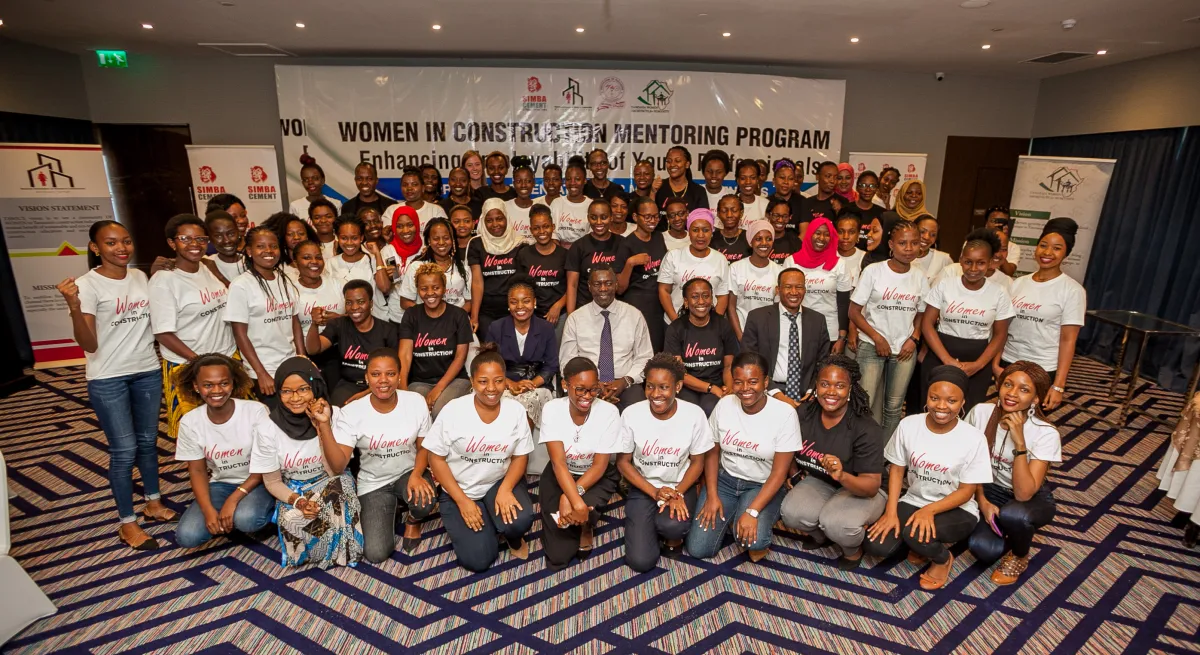
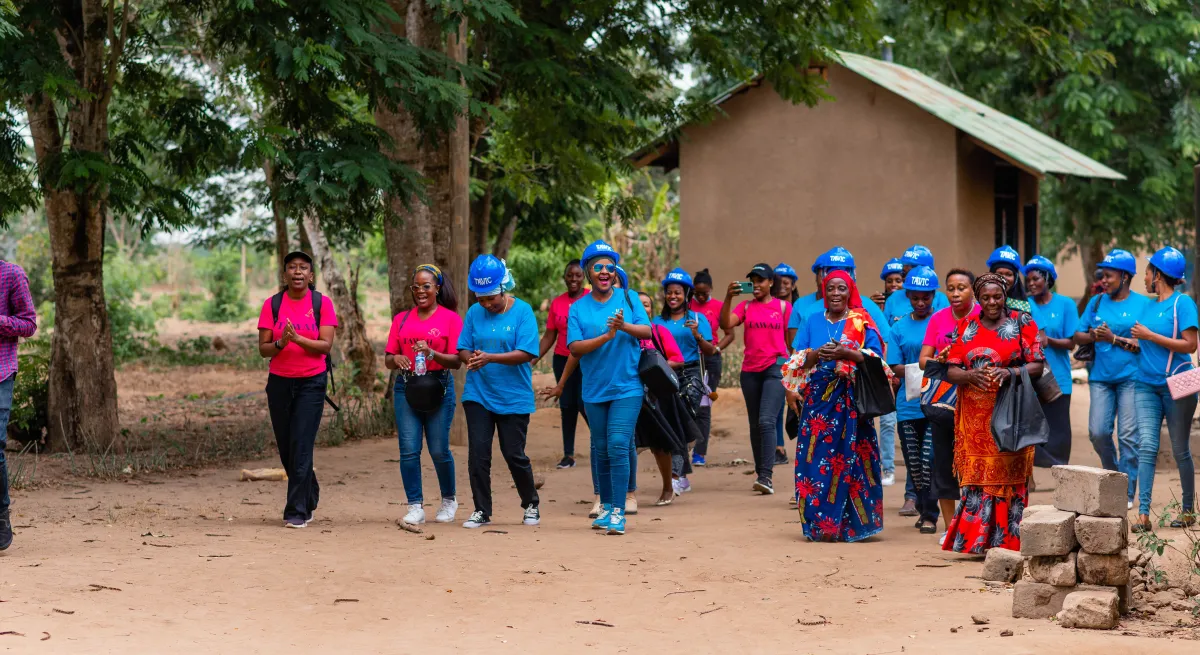
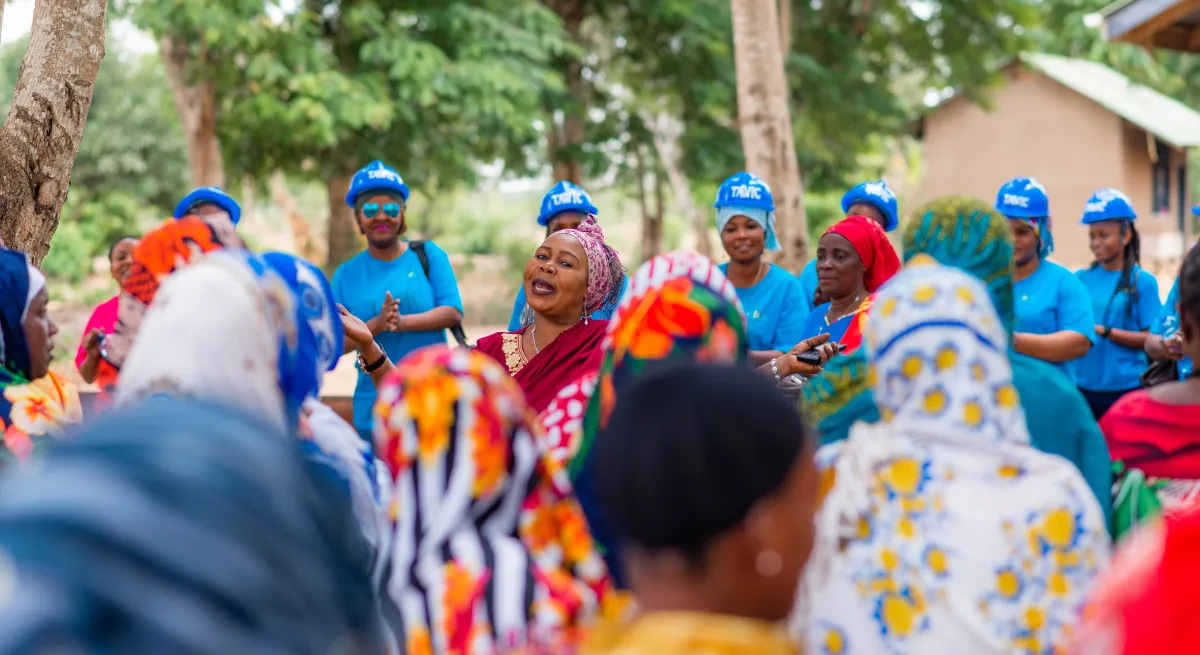
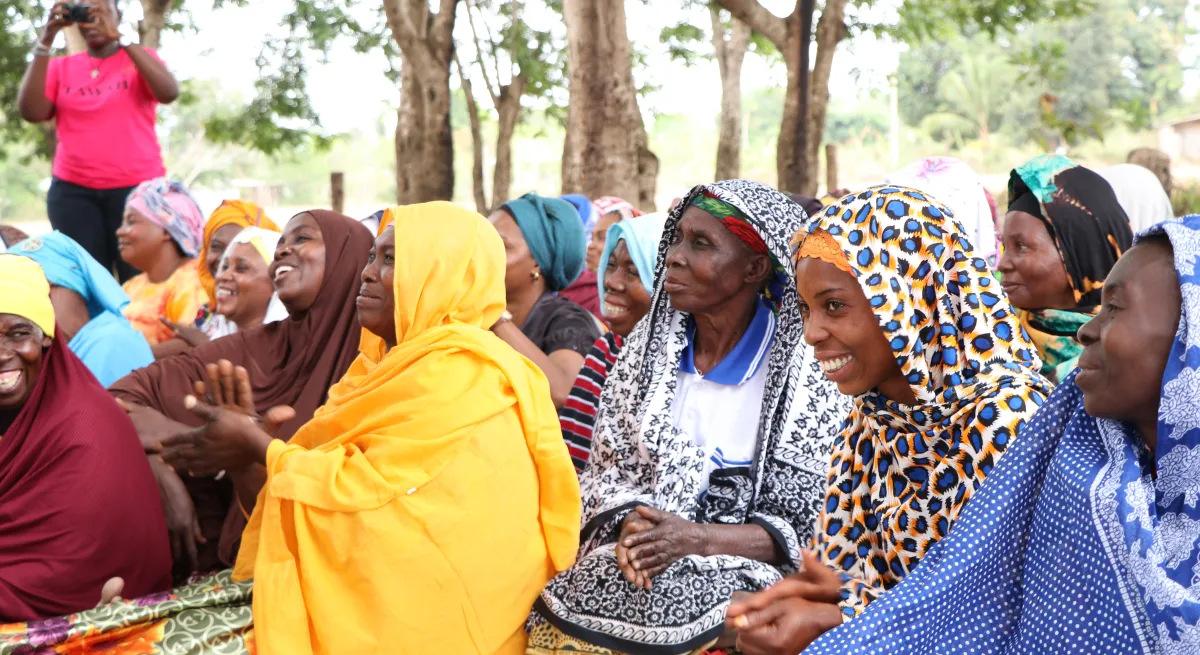
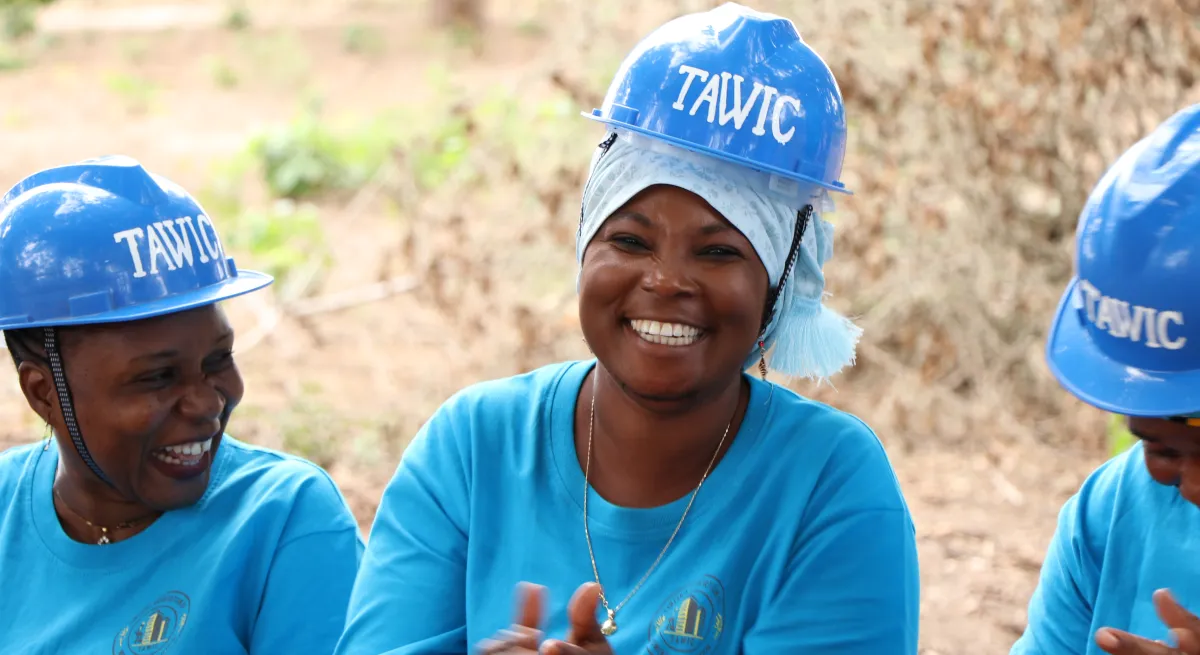
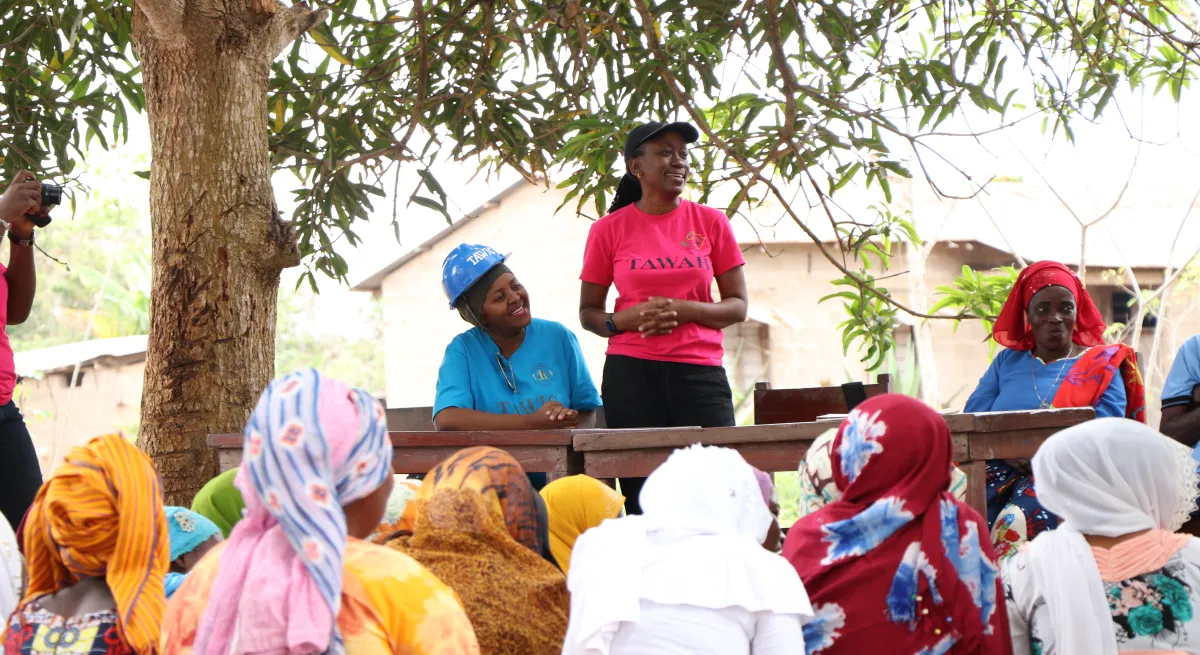
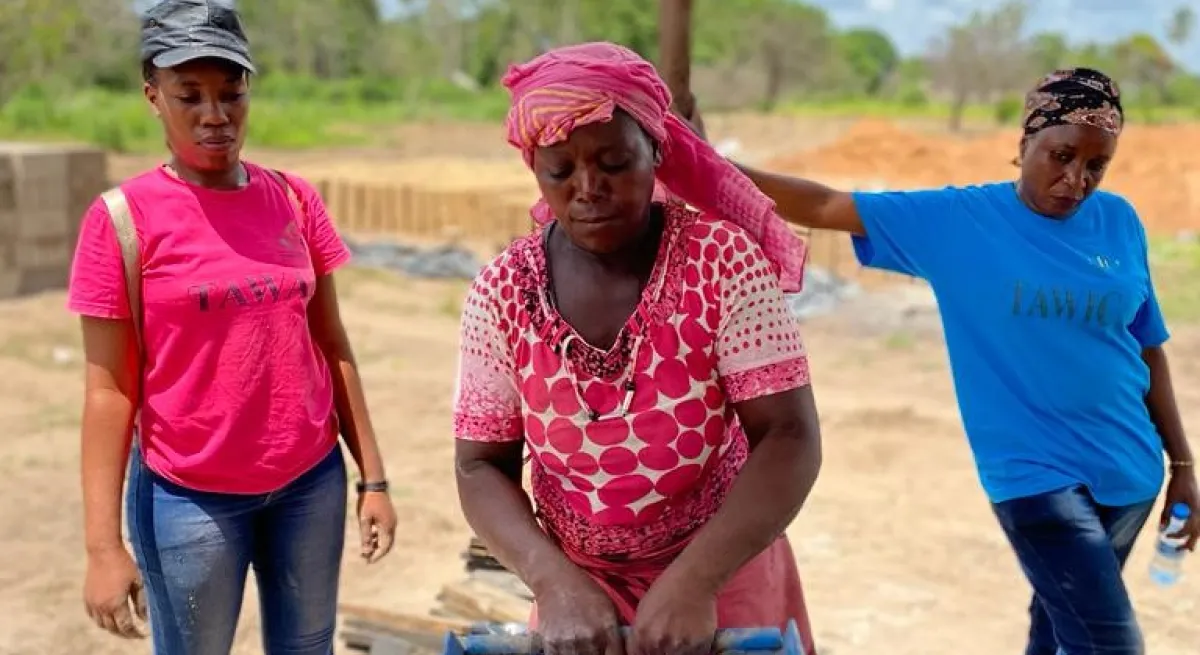
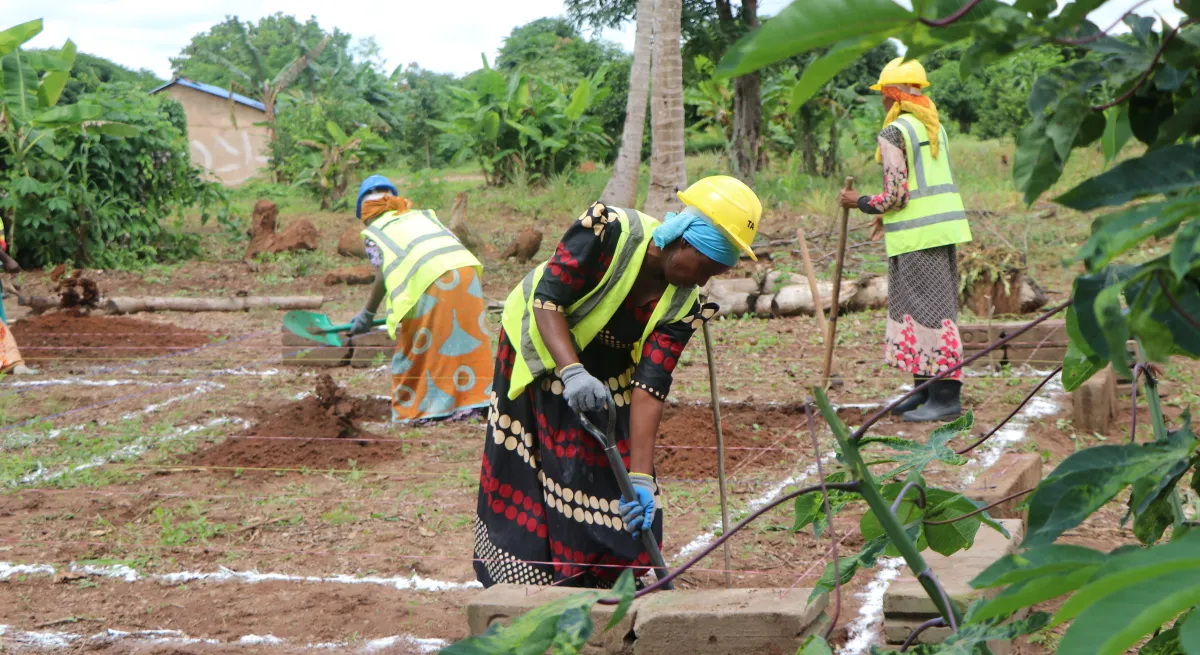
How did TAWAH start?
We started in 2010. Besides me there were two other friends who were architects and my sister, who’s an environmental engineer. I used to volunteer for Habitat for Humanity. I really enjoyed what they were doing: going to rural areas and improving shelters for people in need. That was the main inspiration to start TAWAH: improving the conditions in the rural areas, opening up access to a better environment and a better education.
In 2011 we had floods in Dar es Salaam. Those affected were relocated to tent camps outside the city. We decided to prepare a proposal for the Regional Commissioner’s Office to build two-bedroom houses. We collaborated with the local Building Research Unit to show how to produce interlocking bricks using local mud and a bit of cement, and how to produce roofing materials using sand. The research was there, the material was there, the machines were there, but the knowledge had not been leveraged. We tapped into the available material and machines, and the Regional Commissioner’s Office helped us to get funds. We started by building two houses, then we got more funds. That’s how it started.
Bricks return. Aren’t they also key at the Mhaga Village project?
Yes! In Mhaga we started by building a girls’ secondary school. Then we were given a piece of land and planned to build a Knowledge Center, run by women to support women.
First, a group of local women learned how to make bricks and started laying the foundation and building the walls of the center. The mud bricks are made sustainably with local materials.
The women trained in construction work will progressively leverage this learning to build their own houses, start their own business and become financially stable.
But the whole process is not only about building houses. It’s about building communities. We aim to instill in women the idea that they can mobilise themselves and do something for people in need, and ultimately for the whole community. The lack of affordable, quality houses in the rural areas is a major challenge in Tanzania, especially for the most vulnerable like the elderly, people with disabilities and female-headed families. So we engaged the trainees who finished the first part of the training to build houses for elderly people.
The whole process is not only about building houses. It’s about building communities
After one year, what has changed? What are the key achievements?
We’ve already trained and worked with 31 women. Our goal is to train 120 by the end of the year in a village with a population of 1,400. Most of the Knowledge Center and two houses for elderly people have been built.
It’s not just about the numbers. This process is empowering the local women. They are acquiring the skills to do something for themselves and for others. As they work, I hear comments like: “I never thought I could make a brick…never thought I could build a wall! I bought a bag of cement, and now I know how to put down a proper floor”.
Throughout this process, the contribution of TAWIC (Tanzanian Women in Construction) has been important. TAWIC is composed of around 40 women who did not have the chance to receive an education but were trained on the job in various construction fields, enabling them to gain a profession and economic independence. Some of them, for example, were originally cleaners and today work as painters or carpenters. They train Mhaga Village women. What’s more, the TAWIC mentors are the source of inspiration for the trainees. They show them that it is possible to break the pattern and build themselves a different life even though they did not have the opportunity for a traditional formal education.
And what are the challenges and the learning?
While many of the trainees are fully engaged, some are putting on pressure for higher rewards. In the project budget we manage to save a small amount of funds to reimburse their expenses, as they need to take time and transport to reach the constructions sites. Some of the women say their husbands expect a higher pay. This is not possible as the goal of the project is not to provide the trainees with a salary, but to train them to progressively start their own activities alongside their community work.
We understand that many of them are also not living in decent housing. So, a key learning is that beyond the upskilling that we provide, they should be able to improve their own house alongside the other vulnerable groups in the community.
We won’t be able to raise their pay, but we now plan to start visiting their homes and help them to fix their houses as well.
On another level, we will help them to organise themselves into a community-based group where they can work together, make profits, grow together and take decisions for a joint business. Our support in this sense includes also providing them with very concrete business skills, such as calculating the amount of material needed, costs, timing, pricing and so on.
What’s your plan to make the project sustainable?
One of the key areas that we looked at for the sustainability of the project is the production of mud bricks that will be sold to support the Knowledge Center. The women who will start a community-based organisation will continue to work with the Center producing building materials for sale.
The Knowledge Center will host other organisations and institutions, supporting them both with the offer of training and use of the facilities. And we will continue to host international groups and individuals to volunteer in Tanzania, helping to raise funds for the center.
We won’t stop at the women of Mhaga. We want to give the women of Tanzania the opportunity to learn and bring this knowledge to other regions.
Volunteering for TAWAH
Any student/graduate, professional focusing on subjects ranging from Architecture, Engineering, Construction Sciences, Environment, Sustainability as well as Community Development are welcome to join the TAWAH team at the Mhaga Village Knowledge Centre. For more information www.tawahtanzania.or.tz
And finally, what has changed for Victoria?
This whole experience brings me greater happiness. TAWAH teaches me every day that YES, you can come up with ideas and be able to implement those ideas, building support systems that make things happen. It really taught me that if you want it, you can do it: go and ask for help. In my case, I learnt I do not have to have money to build something valuable for the community. It all starts by asking.
YES: you can come up with ideas and be able to implement those ideas, building support systems that make things happen. You can do it: go and ask for help! It all starts by asking
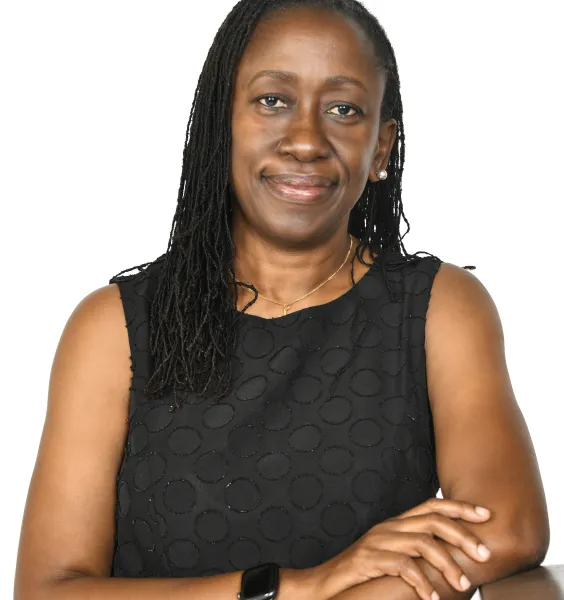
Dr. Victoria Marwa Heilman is a registered practicing architect in Tanzania. She is the Founder and Managing Director of Alama Architecture (formerly known as VK Green Architects), a company that she started in 2012 while teaching at Ardhi University’s School of Architecture and Design.
Victoria is passionate about helping communities in need through her knowledge and expertise in architecture. She is the co-founder of Tanzania Women Architects for Humanity (TAWAH), an NGO that works with women and youths to build adequate shelter for poor communities in Tanzania, and served as TAWAH’s chairperson from its inception to 2020. In 2018, she left her academic career to devote more time to TAWAH where she is now managing a number of endeavours, including the women empowerment project at Mhaga Village, Kisarawe District, in the Coastal Region.
Victoria holds a PhD in Architecture from the University of Stuttgart in Germany, a Master’s Degree in Architecture from the Catholic University of America and a Bachelor of Architecture from the University of Dar es Salaam-UCLAS in Tanzania. Victoria was a Ford Foundation IFP fellow 2004, an Eisenhower Fellow since 2016, a Mama Hope Global Advocate since 2020 and she was nominated as an SDG Innovation Champion for Sustainable Cities and Communities in 2022.
